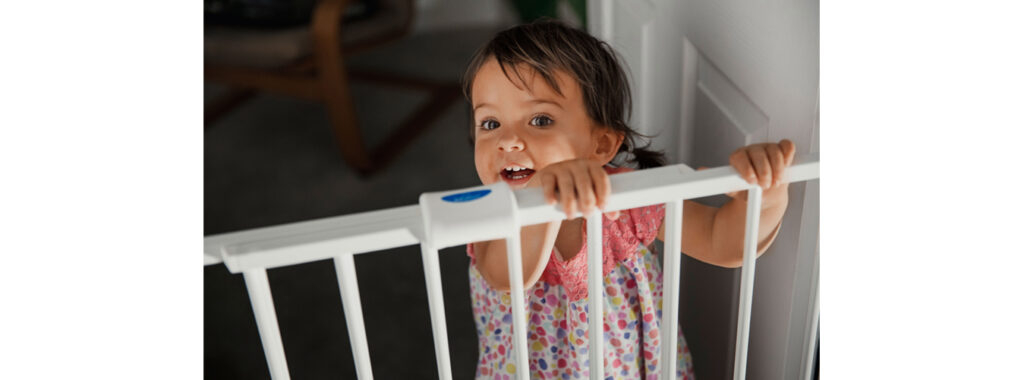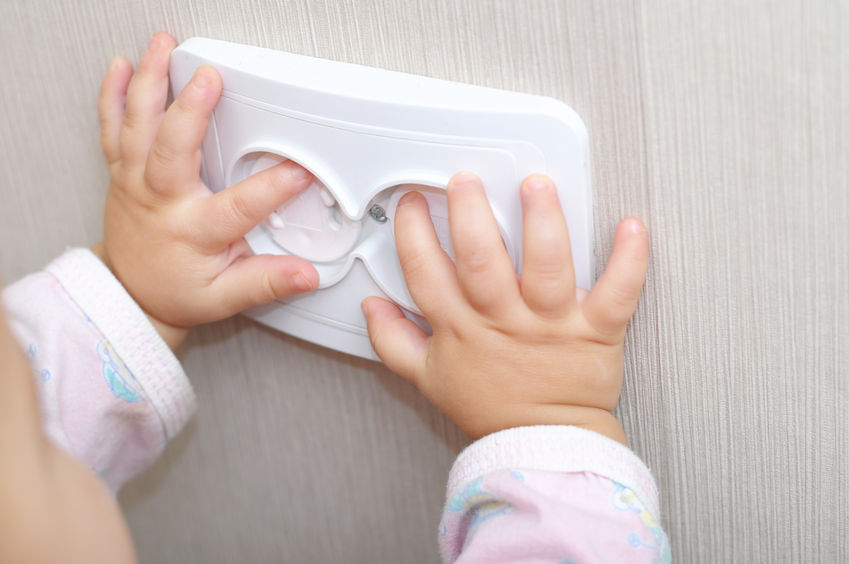The moment your baby takes their first steps is a milestone filled with joy and pride. However, a newfound sense of mobility also brings new safety concerns. Here are some essential tips to ensure your little explorer stays safe as they navigate their world:

1. Baby-Proof Your Home:
Think from your baby’s perspective – everything is within reach! Here’s how to create a safer environment:
- Block Off Hazards: Install baby gates at the top and bottom of stairs, secure cabinet doors with childproof locks, and cover electrical outlets with safety plugs.
- Corner Protectors: Cushion sharp corners of furniture with corner protectors to prevent bumps and bruises.
- Clear the Floor: Remove clutter, loose rugs, and electrical cords from the floor to prevent tripping hazards.
- Secure Furniture: Anchor heavy furniture like bookshelves and dressers to the wall to prevent them from tipping over if your baby pulls on them.
- Cabinet Contents: Move cleaning supplies, medications, and other harmful items to high cabinets out of reach.
2. Supervision is Key:
Never leave your baby unattended, especially near hazards like stairs, pools, or bodies of water. Constant supervision is crucial to prevent accidents.
3. Footwear Matters:
Shoes with good traction and flexibility are essential for supporting your baby’s new walking skills and minimizing slips and falls.
4. Gates and Playpens:
Utilize baby gates to restrict access to unsafe areas and use a playpen for supervised playtime, creating a designated safe space for your explorer.
5. Learn CPR:
Knowledge of infant CPR empowers you to respond effectively in case of emergencies. Consider enrolling in a CPR certification course specifically designed for infants and children.
6. Electrical Safety:

Unplug unused appliances and keep electrical cords out of reach. Use outlet covers for all unused outlets.
7. Kitchen Safety:
Keep hot liquids and sharp objects out of reach on counters and stovetops. Secure cabinet doors under the sink where cleaning supplies and potentially harmful items may be stored.
8. Water Safety:
Never leave a young child unattended near bathtubs, pools, or bodies of water. Empty bathtubs after use and keep bathroom doors closed. Invest in a toilet lock to prevent curious little hands from exploring.
9. Choking Hazards:
Be mindful of choking hazards. Keep small objects, like marbles, coins, or buttons, out of reach. Cut grapes, hot dogs, and other round foods into small pieces to prevent choking risks.
10. Poison Prevention:
Store all medications, cleaning supplies, and other potentially poisonous substances in locked cabinets or high shelves, far out of reach.
Remember:
- Exploration is Natural: Curiosity and exploration are essential aspects of your baby’s development. Provide safe and stimulating toys and activities to channel their curiosity.
- Positive Reinforcement: Focus on positive reinforcement for safe behavior. Praise your baby for staying within designated areas and discourage climbing on furniture or exploring unsafe areas.
- Consistency is Key: Consistency is crucial in implementing safety measures. Ensure everyone caring for your baby understands and follows the established safety protocols.
By following these tips and creating a safe and stimulating environment, you can foster your baby’s newfound independence while minimizing the risk of accidents. Remember, parenthood is a journey of learning and constant vigilance. As your baby grows and explores, adapt your safety measures accordingly to ensure they can safely navigate their expanding world.

